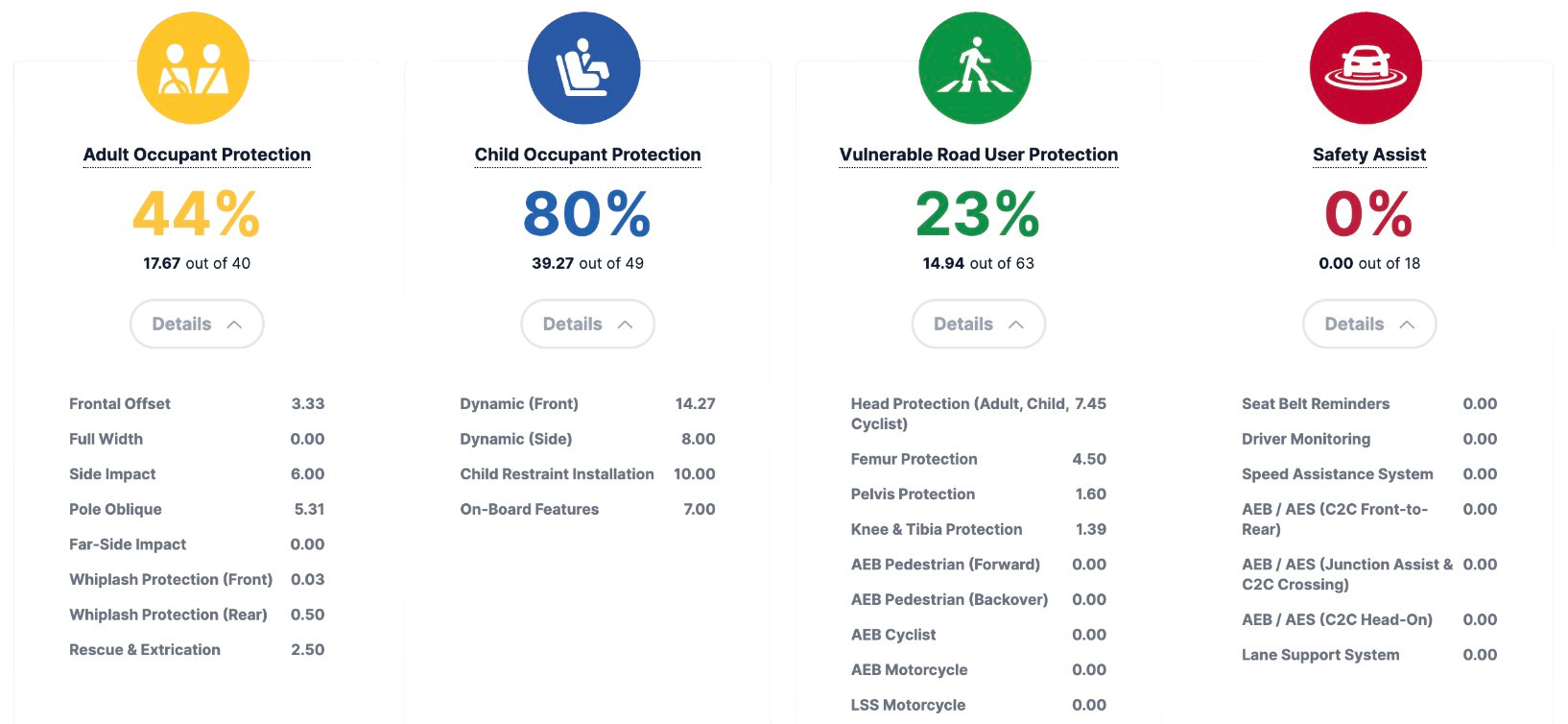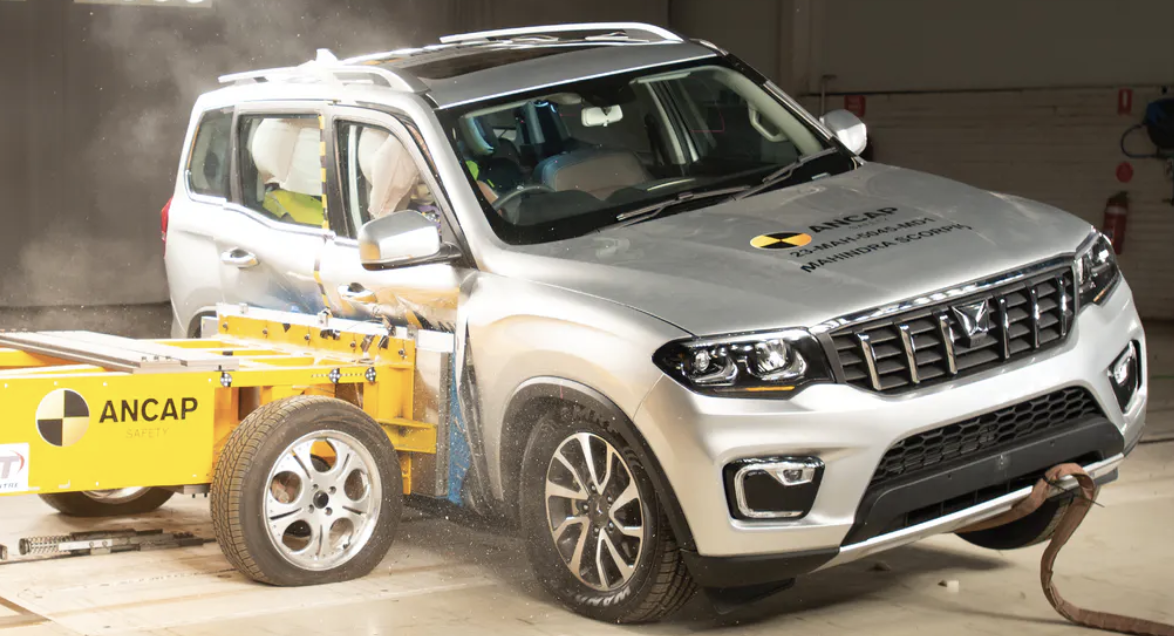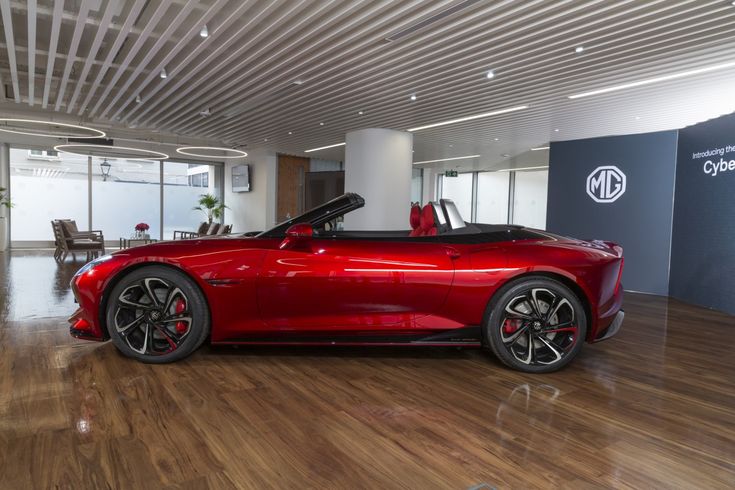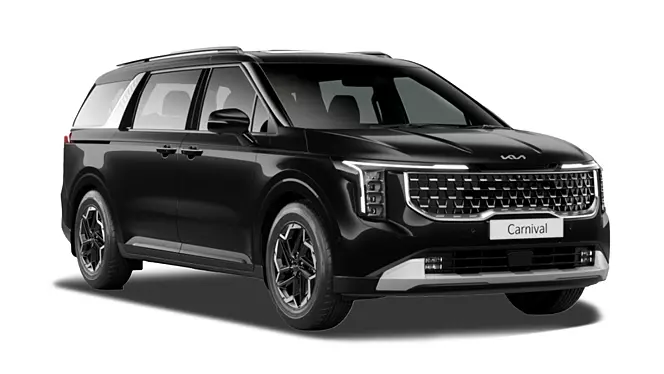The Mahindra Scorpio-N, which secured a 5-star rating in the GNCAP testing, recently faced a drastic turn of events in Australia. The Australasian New Car Assessment Program (ANCAP) gave Mahindra's flagship SUV a zero-star rating, causing quite a stir in the Indian automotive market. This unexpected rating has left many questioning the consistency and fairness of safety assessments across different organizations.
ANCAP's New Safety Protocols
On January 1, 2023, the ANCAP announced new testing protocols, placing significant emphasis on Active Safety Features. These features, part of the ADAS suite, go beyond traditional passive safety measures like airbags and crumple zones. The ANCAP mandated high-tech safety features, including autonomous emergency braking and lane support systems, to prevent accidents.
Scorpio-N's Overall Safety Assessment
As opposed to GNCAP's protocol for India, ANCAP's protocol comprises four key assessment areas: Adult Occupant Protection, Child Occupant Protection, Vulnerable Road User Protection and Safety Assists. The Scorpio N managed a score of 44 percent in Adult Occupant Protection, 80 percent in Child Occupant Protection, 23 percent in Vulnerable Road User Protection and 0 percent in Safety Assist. The ANCAP has highlighted that the Australian-spec Scorpio-N lacks essential Advanced Driver Assistance Systems (ADAS) features. Crucial safety elements such as an autonomous emergency braking (AEB) system and a lane support system (LSS) are absent. Additionally, the vehicle comes without a driver monitoring system (DMS), a speed limit information function (SLIF), child presence detection (CPD), and seatbelt reminders for any occupants seated in the second or third rows.

The SUV faced also mixed ratings in crash testing, with concerns raised about side protecting airbags and seat belt configurations. This comprehensive list of missing safety features played a significant role in ANCAP's decision to give the Scorpio-N a zero-star rating, underlining the critical importance of these advanced safety technologies in contemporary vehicle assessments. However, despite these challenges, Scorpio-N excelled in child occupant safety, earning an impressive 80% rating.
ANCAP's Emphasis on Safety Assist
While traditional crash testing remains a factor, ANCAP's new protocols focus heavily on safety assist functions. Scorpio-N's inability to incorporate these features led to a compromised safety rating despite its strong structural integrity. ADAS systems have demonstrated the potential to prevent up to 60% of road casualties, according to the National Safety Council. However, challenges such as system failure and reliance on technology pose potential issues. ANCAP's decision to prioritize these features underscores their belief in the effectiveness of ADAS in enhancing overall vehicle safety.

Conclusion
While Scorpio-N's zero-star rating from ANCAP raises questions, it's essential to recognize the evolving landscape of safety assessments. The absence of ADAS features played a crucial role in the low rating, emphasizing the importance of active safety measures in modern vehicle evaluations. Ultimately, Scorpio-N remains a strong contender in terms of passive safety, and the decision to integrate ADAS features in future updates reflects a commitment to enhancing overall safety without compromising affordability. The case of Scorpio-N prompts a broader conversation about the changing dynamics of car safety assessments and the challenges posed by evolving standards.















 AutosXP
AutosXP 
 +91 74280 90820
+91 74280 90820


